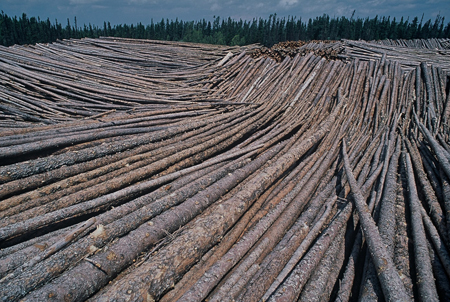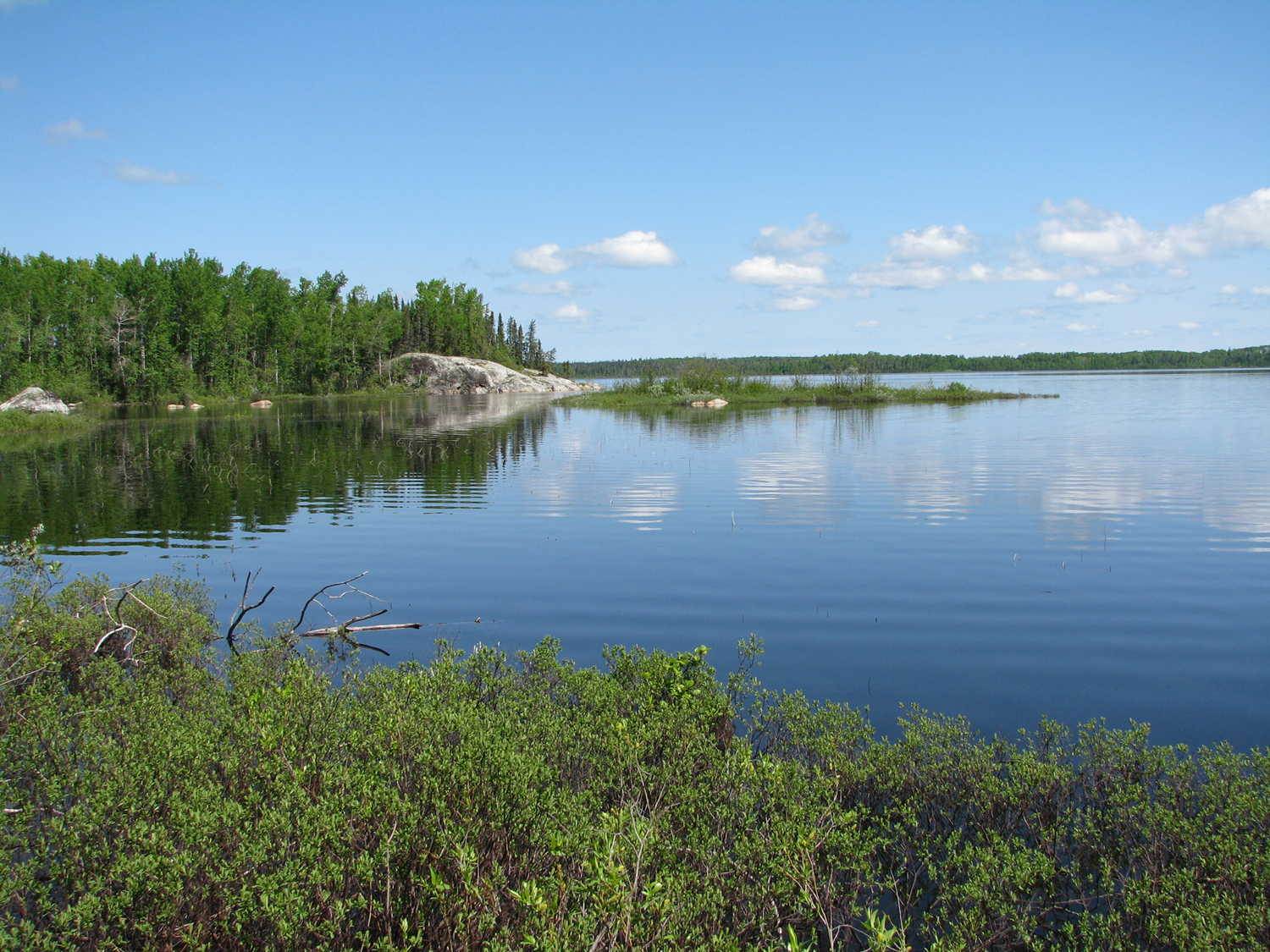Just over two years ago the unthinkable happened. After decades of disputes and fighting over logging in pristine parts of Canada’s boreal forest, environmentalists and forest companies finally decided to talk to each other directly about their concerns rather than by exchanging sound bites through the media.

Log pile in Canada's boreal forest
Credit: Garth Lenz
Although it took several years to negotiate the final language, the result was the world-changing Canadian Boreal Forest Agreement (CBFA), essentially a truce between the traditionally sparring sides which would see forest companies improve sustainable practices and avoid logging in increasingly-declining Woodland Caribou habitat in exchange for environmental groups abandoning their “Do Not Buy” campaigns, which had targeted suppliers and consumers to avoid purchasing unsustainable forest and paper products from the Canadian boreal.
The size of land affected was equally staggering: 72 million hectares (178 million acres) of forest held to new sustainability standards of which 29 hectares (72 million acres) of caribou habitat would be temporarily protected with the goal of eventually creating permanently protected areas in those regions.

Map of caribou harvest deferrals and sustainable management areas
Credit: Canadian Boreal Forest Agreement
As impressive and celebrated as this feat was, the hard work had actually just begun.
The forest companies and environmental groups that signed the CBFA only constituted two of the four parties needed on board for this vision to fall into place. Provincial governments, which manage public lands and tenures, and regional communities and governments (particularly Aboriginal) would both be needed to be on board before any permanent changes could take place under the Agreement.
The CBFA had highlighted several pilot areas at its conception with which to focus and explore the nitty-gritty, on-the-ground details of implementing the broad vision of the agreement. The idea was that if the CBFA model could be successful in a few targeted regions of the Canadian boreal it would ideally work elsewhere. Things moved along slowly behind the scenes over the next year or so and the CBFA largely fell out of the spotlight.
Pressure to create some good news intensified earlier this year, though, when several of the participating environmental groups went to the media to express their frustration at the lack of progress going forward. Many of the benchmarks outlined in the Agreement had yet to be met and few of them had been met on time according to the original timeline.
But through it all a dedicated group of people continued working on a pilot project in Ontario and in July, CBFA representatives (which included timber titans Tembec and Resolute Forest along with environmental groups such as the Canadian Parks and Wilderness Society) announced that they had reached a final agreement that had the support of the local community and the regional First Nation. The provincial government expressed support but still has to review the plan and decide if it will make it official.

Boreal forest in northern Ontario
Credit: Jeff Wells
The crown jewel of this leap forward is the suspension of all logging in 835,000 hectares (2.1 million acres – roughly the size of Yellowstone National Park) of caribou habitat in the Abitibi River forest region of northeastern Ontario. More than 2 million hectares (5 million acres) of additional forest will be managed more sustainably throughout the region.
This represented the single largest victory for the CBFA since the opening announcement. Getting the environmental groups and industry on the same page had proven possible, albeit not easy. Successfully integrating the provincial government and regionally-affected Aboriginal governments into the final planning phase was more of an unknown. At least until now.
With this breakthrough, though, we now know what is possible. There are many other projects going on elsewhere in Canada under the CBFA, and all face their own unique set of issues and challenges. It will be far from easy, but this recent deal should provide some momentum for those frustrated by the lack of progress on the ground.
It’s been somewhat of a rollercoaster throughout this whole process, with ups and downs at nearly every turn. This summer is undoubtedly a high, particularly in Ontario. May it be a sign of many more to come.

